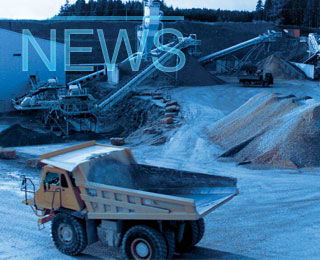India's coal ministry has tabled a proposal that cement, steel and sponge iron companies that have captive coal mines have an undue advantage, and this could be offset with a new tax.
The rationale behind the coal ministry's proposed increase in taxes on cement and steel companies that own coal mines is that, while they are insulated from the market vagaries as far as this key input is concerned, their output prices are market determined, leading to an undue advantage. The exact amount of tax is yet to be determined, claims Metis Business Solutions Pvt Ltd.
However, these companies already pay royalty to the respective states as commercial coal producers. Coal India alone paid INR72.5bn (US$1.19bn) as royalty in FY13. The royalty is levied at 14 per cent by all states except West Bengal, which charges INR6-7/t (US$0.09-0.1).
What the coal ministry wants is an additional levy on the volume of captive coal produced. It has sought the finance ministry's opinion on the matter and given the less-than-budgeted tax receipts growth in recent years, the finance ministry is likely to endorse the same. With elections due in April-May this year, the final call on the coal ministry's proposal will be made by the new government, which is expected to take over by the end of May.
Sources said that the coal ministry has drawn a distinction between power companies with captive coal mines, and cement and steel companies with this facility. Power producers are bound by long-term power purchase agreements with state utilities and have limited freedom of selling power in the open market whereas steel and cement prices are fully market determined.
The proposal, if implemented, could dent the revenues of Birla Cement, Binani Cement, Ambuja Cements and JK Cement. They have been awarded coal blocks to source the fuel for their plants. While the country's total coal production stood at 557.7Mt in FY13, captive coal output was around 36.8Mt or 6.59 per cent.
The government's move to levy additional duty on captive coal follows the Comptroller and Auditor General of India's report that said the exchequer had lost over INR1.86trn (US$30.6bn) as coal blocks were allocated to private companies without auctions.
The additional duty could lead to increase in cement prices as the companies would choose to pass the extra cost on to consumers.

Indonesia cement demand continues to contract
Cement sales in Indonesia amounted to 3.842Mt in March 2025, a drop of 21.6 per cent YoY compare...